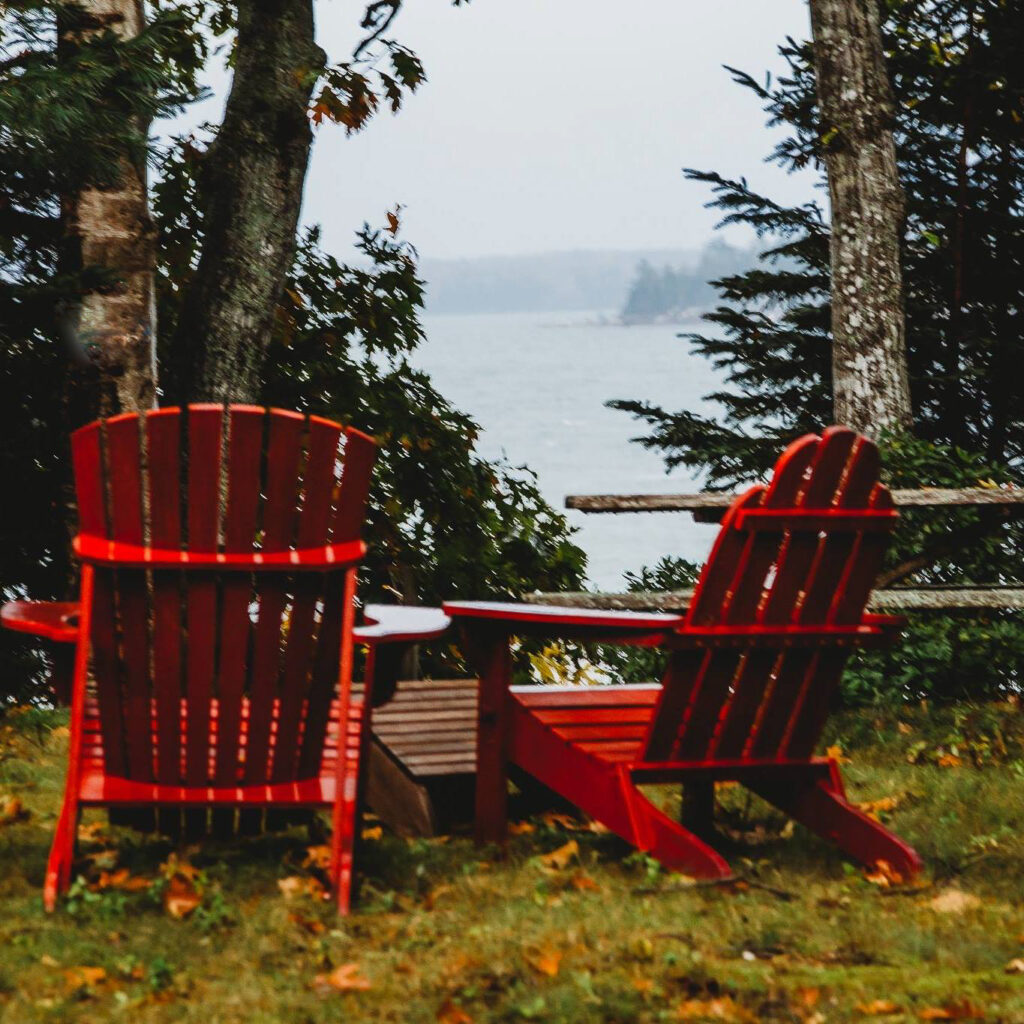In Our Feel-Good Culture, What Can We Learn From COVID-19?

I don’t know about you, but I’m someone who needs to know what soup I’m swimming in to be able to stay afloat. I need to understand contexts around me in order to make meaning and sense of what’s going on. I need to know what I can learn from COVID-19.
Initially, I found myself unable to understand exactly what was happening. How could a virus suddenly be overtaking our world? I hardly knew what to think or feel as complexities of COVID-19 were being discovered and then reported at rapid-fire pace from around the world.
It all seemed so surreal. To some extent, it still does.
Not only was loss of life becoming a shocking reality of the virus, but also the speed with which the virus was spreading. On a more concrete level, other losses were being incrementally felt as well, such as loss of everyday routines, patterns, ways of thinking and coping, being and working, earning and living, shopping, traveling, recreating, worshipping, all of it.
I felt myself surrounded by anxiety and fear all around me in media reports as well as multiple list-serves one by one announcing conferences and other venues that were being canceled. Months, sometimes years of preparation for these events, now gone. I myself, was scheduled to leave for Switzerland to present professional papers at a conference, all of which was canceled by the Swiss Government hours before I was to get on the plane.
Swimming in all this hype and confusion, I knew instinctively and innately that these reactions and fears are not going to abate anytime soon.
This is too big.
But as I sat with my own feelings, I pondered what underlying emotions and fears might be driving the intensity of reactions being seen and felt so keenly. What is the primary button or what might be the primary feeling that is creating dread and panic for some, if not many or most? From an even wider lens, what life lessons might be learned from COVID-19 that in the long run, will help us become stronger more viable people?
I am a psychotherapist who specializes in painful feelings and changed realities stemming from grief, loss, and trauma.
Almost immediately I became aware of difficulties COVID-19 is causing us not just because of obvious physical risks posed by the virus, but because COVID-19 is also presenting us with unprecedented issues of grief, loss, and trauma. We are not accustomed to living through pandemics. And this pandemic is surrounding and confronting us with issues of isolation, loss, and trauma, that as a culture we have worked long and hard to avoid.
Let me put it this way. We are a feel-good culture that lives in a relentless quest to be happy. And for the most part that may not be a problem. Of course, feeling good feels good! The issue now, however, is that we simply do not know what to do with our painful and conflicted feelings of fear, loss, or trauma. We simply have never learned the skills and tools to deal with emotions that for the most part, we have worked so hard to avoid!
You see, we’ve been taught in a lot of ways to avoid our feelings of loss and grief. In fact, maybe our relentless quest to be happy and to feel good represents an unconscious way that we learned to avoid painful feelings of loss. Grief and loss in our culture are simply taboo on many levels. Too often these feelings are pathologized, as we have been taught to avoid, deny, push away, and run from these difficult emotions.
But what is the long-term effect of having looked away from painful feelings? Specifically, what effect has avoiding feelings of trauma and loss had on you as an individual, and what effect has avoidance of painful feelings had on us as families, communities, and entire cultures?
THIS, I THINK, IS THE INVISIBLE GIFT THAT COVID-19 OFFERS US.
The truth is, pain, loss, and trauma are part of life – not just your life or mine, but everyone’s life. What makes painful feelings unbearable is the shame and guilt often associated with them. We feel so alone and isolated when we are in pain. This is a real paradox. Because the truth is that without buying into that shame – by instead facing and dealing with our painful feelings – we actually gain relief.
A big part of the dilemma is that we have never been encouraged or taught “how to” create an emotional home for painful feelings of trauma, grief, and loss. In fact, we have been taught to “stuff” those feelings down; to reject and disown them “as if” they are toxic and the feelings themselves are the problem. In short, we have been taught to look the other way to avoid painful emotions.
This simply does not work.
One thing we can learn from COVID-19 is not to be ashamed of our feelings of fear.
By contrast, once we learn to own and become comfortable with our painful feelings, we gain a great deal. Our painful feelings can become a mirror for us to look into and to draw from, so that we better understand exactly what we are feeling. Our feelings help us to know who we are. Once we open ourselves up to our fears of COVID-19, a bigger picture exists that can help guide us to what we personally need to learn from COVID-19. Understanding what we are feeling through fear and loss informs us about who we are and want we want and need, to know how to show up better in the world for ourselves and those we love.
So how do you do that? How do you create an emotional home for painful feelings? First and foremost, I believe you need to really absorb and believe the meaning of what you are about to read. That is, that when you lose someone or some thing that holds a special place in your heart, it is more than healthy and fitting that you feel your pain deeply. Allow your Self to feel and absorb fully whatever you are feeling, without in any way feeling defective or inferior for feeling it. These are your feelings based on who you are. Your reaction is relative to your loss. Your loss is personal and contextual, based on your life and your relationships. You are the only one who knows what you have lost. And grief is a process we all go through as we work hard to comprehend and understand the meanings of our loss.
Believe in your Self and your feelings, allowing no one to label, shame, or otherwise criticize your reaction.
Once you’ve become comfortable accepting that grief is a normal, healthy response to loss, let’s talk about creating an emotional home for those feelings. By that I mean allowing your Self to know what you are feeling. Don’t hold your painful feelings back or filter them; rather, become user-friendly with whatever those feelings are. Call them by their right names, write them down if that helps, but do not shame, criticize, judge or in any way negatively criticize your Self for having them.
Your painful feelings are as important and significant to the whole of your life just as your feel-good feelings are!
Once you’ve labeled and accepted these new feelings into your emotional home, sit with them. Try to hear what they are telling you and how they are guiding you toward what you feel. Stay with the feelings and sink deeply into and with them. What are your painful feelings revealing to you about your Self, who you are, and what you care deeply about? What meaning is connected to your loss – whether it is loss from Coronavirus or loss more broadly in your life?
What does resistance toward painful feelings represent to you in general; and more specifically, how can you become more open and engaged with these feelings rather than feeling frightened or defensive of them? What are you learning from COVID-19 that helps you understand more about who you are? Other than putting up walls to resist and defend against your feelings of fear, what might you do instead to slow down your reactions and work with your fears instead?
Are you able to recognize and identify that working with fear actually minimizes and reduces your stress during this time of change rather than intensify it? What have you learned from COVID-19 that helps you to know more about who you are?
As you move beyond avoidance of painful feelings into developing and maintaining your emotional home for difficult feelings, your emotional life will be broadened. COVID-19 inherently holds an unspoken and invisible gift for all of us. That is, a gift of understanding and working with feelings of trauma, grief, and loss. These feelings are part of all of our lives. COVID-19 might just be a catalyst guiding our growth in ways that will serve us all well long after the virus is over.
More Blog Articles From This Category
I don’t know about you, but I’m someone who needs to know what soup I’m swimming in to be able to stay afloat. I need to understand contexts around me in order to make meaning and sense of what’s going on. I need to know what I can learn from COVID-19. Initially, I found myself…

